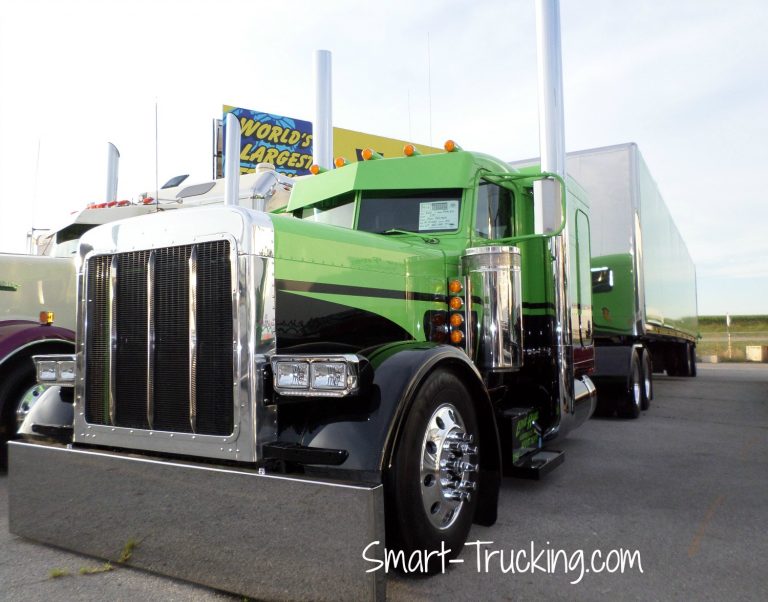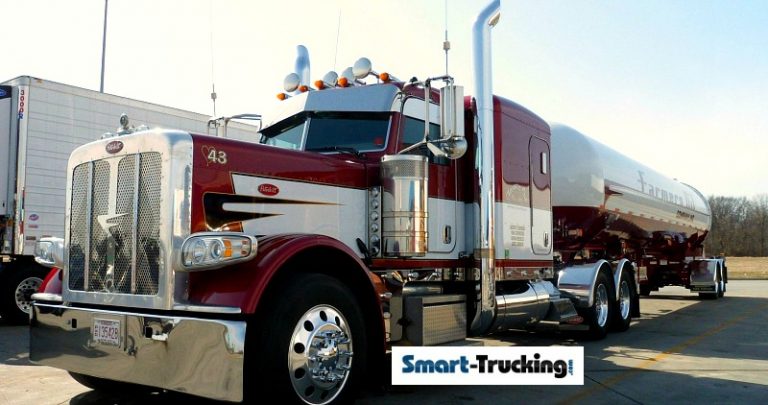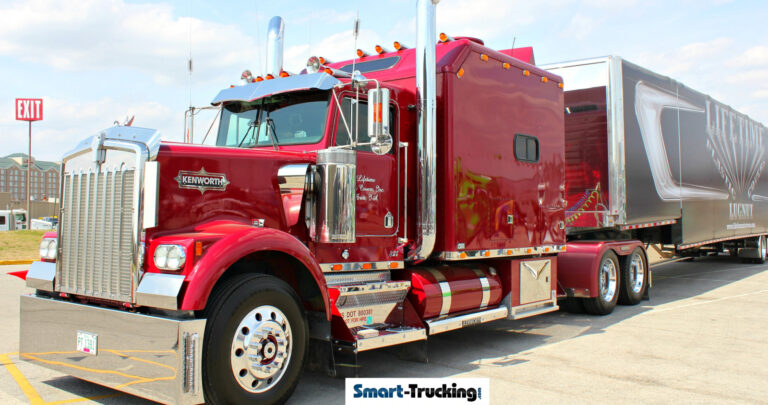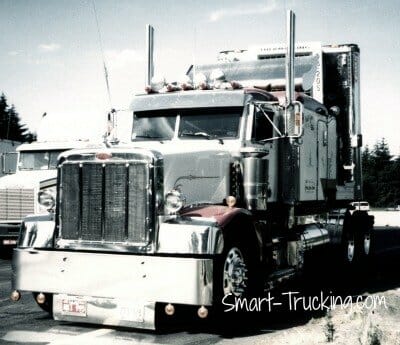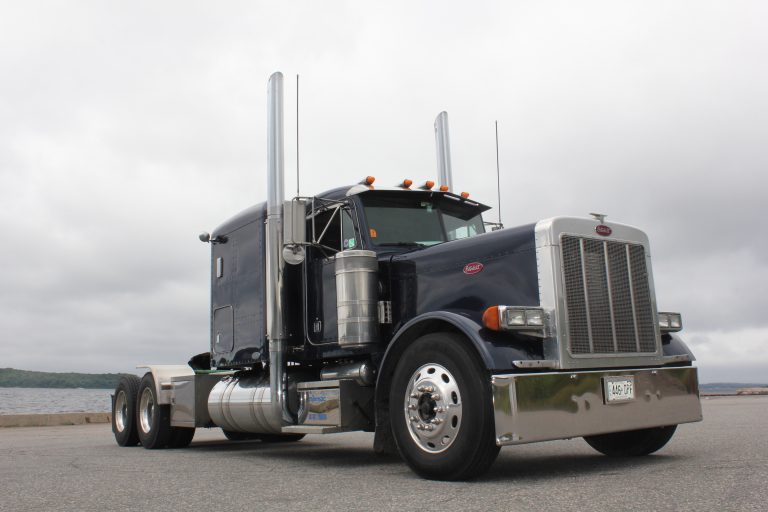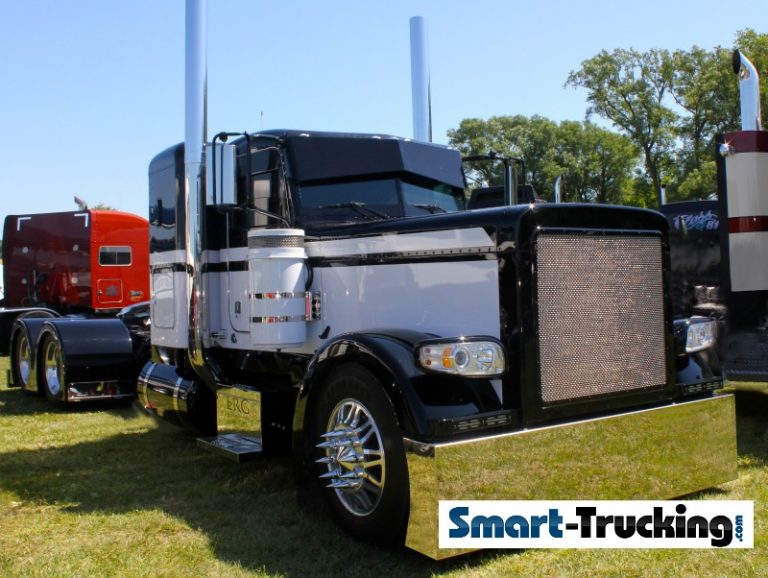Trucker Tips For Diesel Engine Troubleshooting and Maintenance Tips
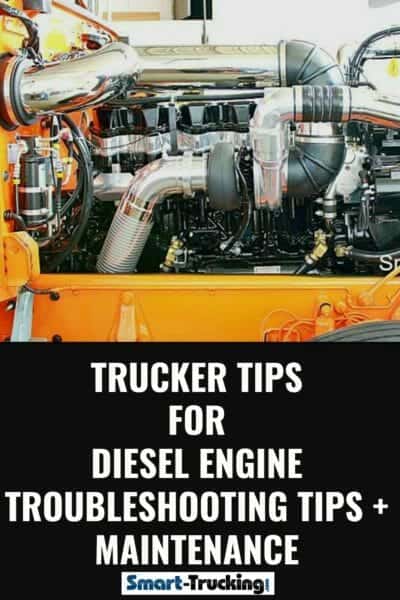 If you are having trouble with your truck engine, diesel engine troubleshooting tips can be handy to get you off the side of the road and to a shop.
If you are having trouble with your truck engine, diesel engine troubleshooting tips can be handy to get you off the side of the road and to a shop.
As an owner operator, it’s useful to know some quick, easy fixes. At the hourly shop prices, it pays off to try to troubleshoot simple engine problems.
There are occasions where an engine fix can be as simple as changing fuel filters or a loose battery connection.
However, the newer diesel engines are computerized and much more complicated and often require a shop with specific technology to analyze engine problems.
You may find your engine issue can be rectified by a simple fix rather than immediately calling a service truck.
I’m not a diesel mechanic, but I do have nearly 40 years trucking experience, some of which was spent on the shoulder of the road.
Here are some tips for troubleshooting for engine problems.
Diesel Engine Troubleshooting – Solutions to Common Problems
Engine Overheating Under Load
- Check the air flow to the rad. Be sure it isn’t blocked by bugs in the good weather or snow and ice in the winter months.
- Check to be sure all axles are rolling freely. Also be sure there are no brakes or tires dragging.
- Check the engine fan and belts to be sure they are operating properly.
- Check outside air temperature. If the air temperature is very hot and you’re driving, gear down.
- Turn off the air conditioning on steep grades in hot weather. This will help keep the engine cool.
- Check the oil and coolant levels when the engine is cool. Check for leaks.
Diesel Engine Starting Problems
- Check the fuel supply. Replace fuel filters, as they could be clogged.
- Check batteries and connections to starter. There could be a loose connection.
- Take a look at the starter motor.
- Check fuel pump and fuel lines.
- Check fuel for contamination. Change fuel filters. Dirty fuel will cause problems.
- Check and clean the air filters. Replace if necessary. Plugged filters will also starve the motor.
- Have a shop check the injectors and ECM.
Excess Smoke
Excess smoke from the engine is most often an indicator of engine trouble forming. The various smoke colours can help you troubleshoot more specifically what the problem could be.
- White smoke can mean the engine timing is off or the engine compression is weak.
- Blue smoke can mean worn cylinders, piston rings and valves.
- Black smoke can be an indicator of dirty air filters, bad injectors, a turbo problem or a problem in a cylinder head (insufficient fuel to the cylinder).
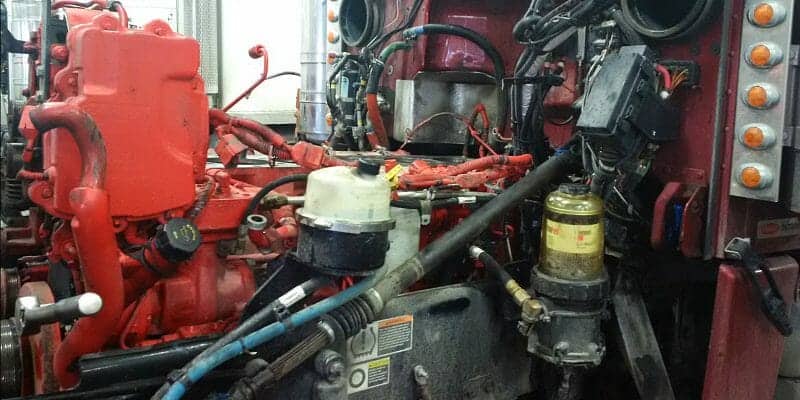 10 Diesel Engine Maintenance Tips
10 Diesel Engine Maintenance Tips
It’s wise to practice preventative maintenance. There are a few things a truck driver can do to avoid engine problems BEFORE they start.
As the saying goes, ‘An ounce of prevention, is worth a pound of cure.’
Here’s a few tips for keeping your truck engine in good working order.
- Keep the radiator free of bugs — If bugs plug up the radiator, it could cause the engine to overheat. You DO NOT want your engine to overheat at any time. Every few days or as often as necessary, check the rad for bugs and clean it out.
- Check the fan belts — Be sure all the belts are in good working order and have the proper tension. Fan belts are essential to the optimum engine performance. A daily task.
- Change oil and fuel filters regularly — Loss of lubrication to engine components causes breakdowns. Plugged fuel filters will also stop the truck. Be sure to follow the engine manufacturer’s guidelines for oil changes. Use TOP quality filters.
- Keep electrical connections clean — The truck function relies on proper electrical flow. Keep battery terminals clean and ground cables clean.
- Buy top quality fuel — Buy from reliable truck stops or distributors. Low quality fuel from some truck stops have been known to add used motor oil to their ground tanks, to extend the volume of the diesel fuel. Use of this contaminated fuel can be detrimental to the diesel engine.
- Check all air connections — Look at the air to air connections from the rad to be sure there are no leaks. Check the air filters. Look for the filter showing signs of compacting. Check these components every few days.
- Keep all gauges in proper working order — All gauges are indicators to the driver of potential problems. High coolant temperature indicates overheating.
Loss of oil pressure indicates an engine problem.
Voltage loss can indicate an electrical issue.
Loss of manifold pressure can indicate a fuel or a turbo problem.
Filter restriction gauge can mean a fuel issue. - Check the engine for leaks — Check the engine often. Check regularly for oil or coolant leeks. If a coolant leak is found, it could be faulty hose, which is easy to fix. An engine oil leak can also be harmless, however to rule out more serious issues, have it inspected by the engine dealer. Under the new environmental regulations, trucks are not allowed to have any leaks. You can be shut down and charged by the D.O.T.
- Oil Sampling — This is a wise investment. Have your oil tested at least annually. The information acquired from testing can be invaluable.
- **IF EVER YOU FIND DIESEL FUEL IN YOUR RAD, THAT’S TROUBLE. GET YOUR TRUCK TO A REPAIR SHOP A.S.A.P.**
Scheduled Engine Maintenance
- Check the recommended engine schedule from the manufacturer. Replace injectors and turbo at recommended mileages before they fail. Towing and/or repairs at unknown shops can be scary and expensive.
- Always remember that more complicated diesel engine troubleshooting and repair should be handled by the engine manufacturer’s dealer shop. MESSING WITH A DIESEL ENGINE CAN BE AN EXPENSIVE MISTAKE IF YOU DON’T KNOW WHAT YOU’RE DOING
- If you’re in doubt about whether or not your engine is in trouble, don’t hesitate to get it checked out. Little problems can grow into big problems. Better to get repairs at a dealer shop you know, than incur tow bills, hotel bills etc., if you’re left stranded roadside in the ‘boonies’. Better safe than sorry.
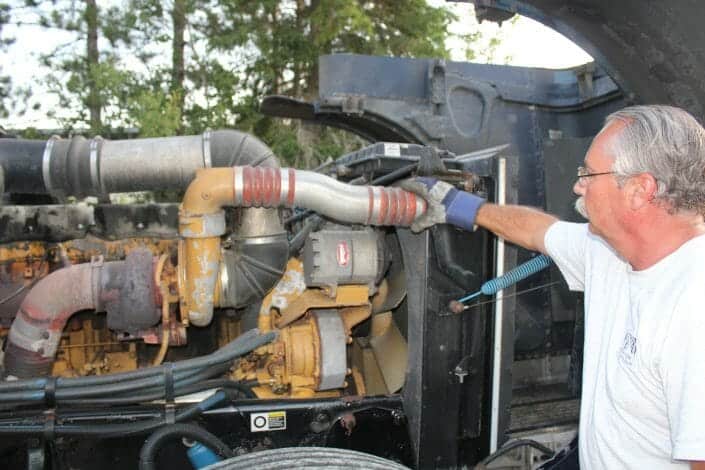
Other Related Articles
